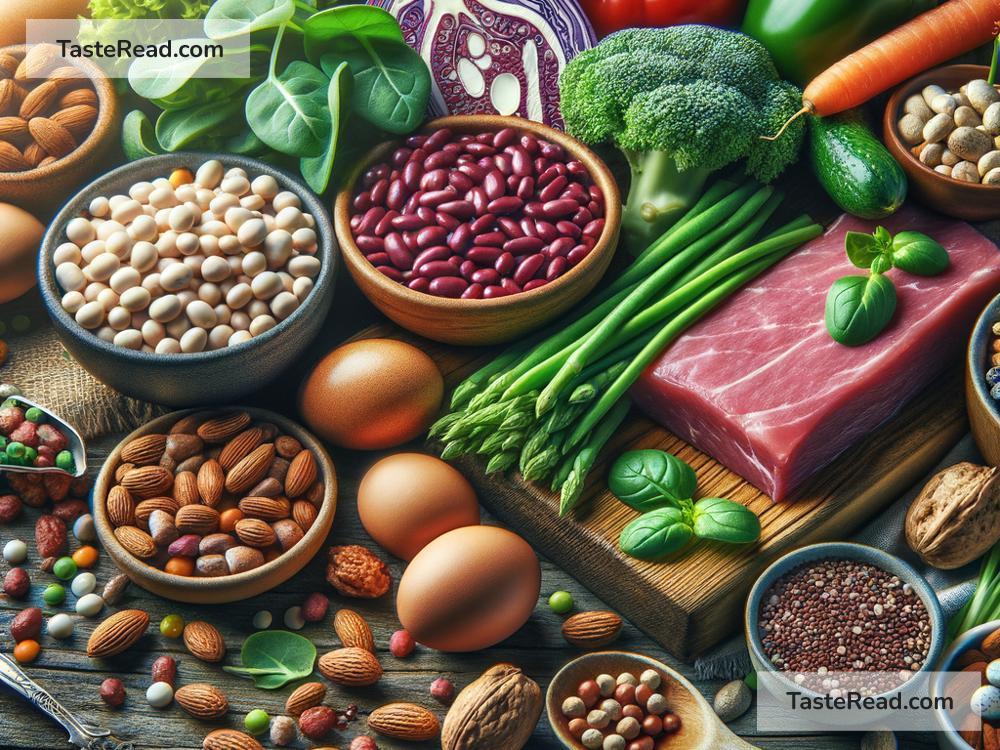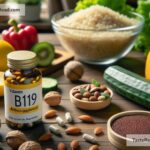The Role of Vitamin B118 in Metabolic Health
The human body is like a complicated machine, with many processes working together to keep us healthy and energized. One of the key players in these processes is our metabolism. Metabolism is how our body turns food into energy and uses it for all the important activities we do every day, like thinking, moving, and even sleeping. While many people know about vitamins like Vitamin C or D, there’s a less talked-about but essential vitamin—Vitamin B118—that plays a significant role in maintaining metabolic health.
In this article, we’ll explore what Vitamin B118 is, why it’s important, and how it helps support your metabolism. Don’t worry—we will keep things simple so that everyone can easily understand!
What Is Vitamin B118?
First, let’s cover the basics. Vitamin B118 (also referred to as adenosylcobalamin) belongs to the family of Vitamin B12. Even though it’s not as famous as other forms of Vitamin B12, it plays a unique and vital role in your body. Vitamin B118 specifically works at the cellular level, helping your body keep its metabolic processes running smoothly.
When you hear the term “metabolic health,” think of it as your body’s ability to efficiently manage and balance energy production. A healthy metabolism means your body can break down food, absorb nutrients, and provide energy to different body parts when needed. Without the right vitamins at play, your metabolism can struggle—and that’s where Vitamin B118 comes in.
How Does Vitamin B118 Affect Metabolism?
Now let’s dive into how Vitamin B118 supports your metabolic health. This vitamin works closely with your body’s mitochondria, which are tiny structures inside cells that act like power plants. The mitochondria’s main job is to produce energy by breaking down substances like carbohydrates, proteins, and fats from the food you eat. Vitamin B118 helps the mitochondria perform efficiently.
When everything is working well, Vitamin B118 contributes to several important processes:
-
Energy Production
Vitamin B118 enables the mitochondria to take nutrients and turn them into a usable form of energy called ATP (adenosine triphosphate). ATP is essential for almost every function in your body, whether it’s moving your muscles or powering your brain. -
Fat and Protein Breakdown
Fat and protein are more complex for your body to break down compared to carbohydrates. Vitamin B118 plays a direct role in metabolizing these nutrients, ensuring that they are properly converted into energy. -
Removing Waste Products
After your metabolism processes food into energy, certain waste products or toxins can build up. Vitamin B118 helps with the elimination of these harmful byproducts, keeping your cells clean and healthy.
Without enough Vitamin B118, these metabolic processes can slow down, leading to issues like fatigue, brain fog, and a lower ability to manage energy from food.
Benefits of Good Metabolic Health
Why should we care about metabolic health? A well-functioning metabolism offers many benefits for your overall health. Some of these include:
-
Consistent Energy Levels: A healthy metabolism means that your body can efficiently produce energy throughout the day, preventing feelings of tiredness or sluggishness.
-
Healthy Weight Management: When your metabolism is working properly, it’s easier for your body to burn calories and regulate weight.
-
Better Digestion: Metabolic health ensures that food is broken down efficiently, meaning your body absorbs the nutrients it needs from meals.
-
Reduced Risk of Chronic Diseases: Poor metabolism is often linked to diseases like diabetes and heart problems. By supporting your metabolism with nutrients like Vitamin B118, you can lower your risk of developing these conditions.
Where Can You Find Vitamin B118?
The good news is that Vitamin B118 can be obtained naturally through your diet. It is commonly found in foods that are rich in Vitamin B12. These include:
- Fish (like salmon and tuna)
- Meat (especially liver and beef)
- Eggs
- Dairy products (such as milk and cheese)
For people who follow vegetarian or vegan diets, getting enough B118 can be tricky. In that case, supplements or fortified foods, like cereals or plant-based milks, may help meet your needs. However, it’s always good to talk to a doctor or nutritionist before adding supplements to your routine.
Signs You Might Be Lacking Vitamin B118
If your body doesn’t get enough Vitamin B118, it can have trouble keeping your metabolism running properly. Some early warning signs of low Vitamin B118 levels include:
- Feeling tired often
- Muscle weakness or cramping
- Trouble focusing or remembering things
- Tingling sensations in hands or feet
These symptoms can sometimes overlap with general Vitamin B12 deficiency. If you’re experiencing any of the above, it may be worth checking your levels through a blood test and exploring your diet and lifestyle.
Final Thoughts
Vitamin B118 may not be the most widely known nutrient, but it’s vital for maintaining metabolic health. It helps produce energy, break down nutrients, and keep your body working efficiently. By ensuring you include foods rich in Vitamin B12 in your diet—or by considering supplements if needed—you can support your metabolic function and improve your overall well-being.
Taking care of your metabolism is like ensuring the engine of your car is in top condition. With the right nutrients, including Vitamin B118, your metabolism can keep firing on all cylinders, giving you the energy and balance you need in everyday life.


